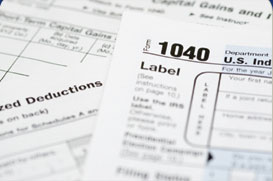

It might be time to update your accounting software and here's a good reason to spend the money. The IRS may want to see your data files if you're audited, and newer software generally has built-in features that let you provide only the information relevant to the period in question.
While you're required to turn over records for examination when requested, some caution is wise, given the amount of data contained in your electronic books. For example, since software makes closing the year-end easy, you might continue inputting new information for current periods with no definitive separation of the data file. If so, when records are requested for one year, the file you provide will contain accounting information from prior and future periods.
What about modifying the cumulative file? Perhaps you're thinking you'll export information from your accounting software to other programs, or create a backup file with only the requested information, or re-create original entries in a new file.
The problem: None of those are exact copies of your original files, and they generally do not provide the audit trail (a detailed record of input activity) that the IRS is looking for. And the seemingly simple solution of turning off the audit trail? That can raise other questions about the integrity of your data.
Even if you're not worried about an audit, it's a good idea to organize large data files containing multiple years of information. Give us a call. We'll help you keep your records accurate and secure.
< Back
(760) 765-0343 (760) 765-0150 Fax


